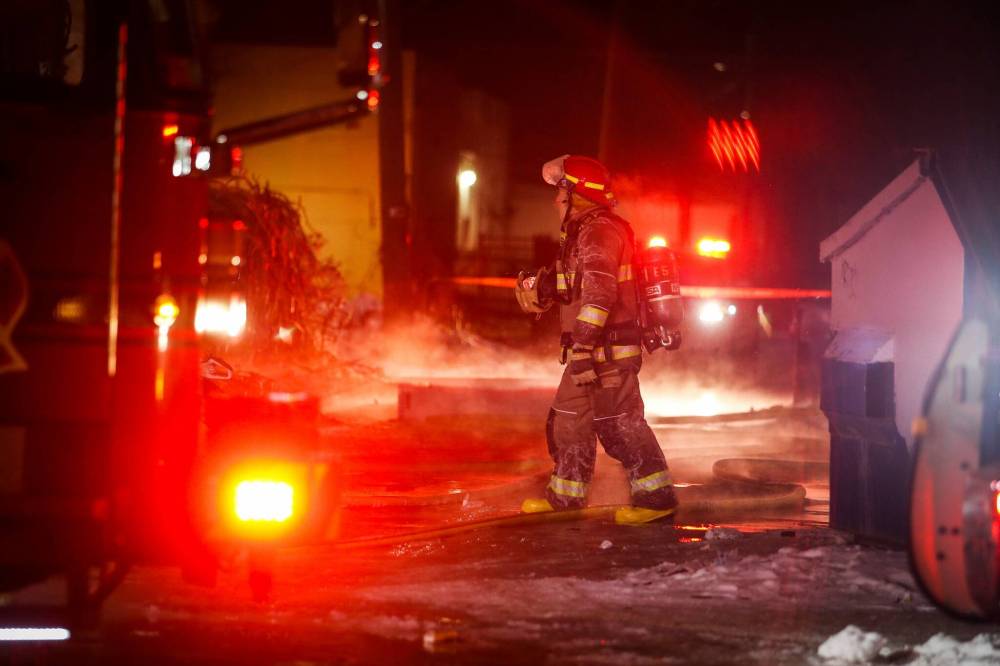It’s time to modernize Manitoba’s addiction laws
Advertisement
Read this article for free:
or
Already have an account? Log in here »
To continue reading, please subscribe:
Monthly Digital Subscription
$0 for the first 4 weeks*
- Enjoy unlimited reading on winnipegfreepress.com
- Read the E-Edition, our digital replica newspaper
- Access News Break, our award-winning app
- Play interactive puzzles
*No charge for 4 weeks then price increases to the regular rate of $19.95 plus GST every four weeks. Offer available to new and qualified returning subscribers only. Cancel any time.
Monthly Digital Subscription
$4.99/week*
- Enjoy unlimited reading on winnipegfreepress.com
- Read the E-Edition, our digital replica newspaper
- Access News Break, our award-winning app
- Play interactive puzzles
*Billed as $19.95 plus GST every four weeks. Cancel any time.
To continue reading, please subscribe:
Add Free Press access to your Brandon Sun subscription for only an additional
$1 for the first 4 weeks*
*Your next subscription payment will increase by $1.00 and you will be charged $16.99 plus GST for four weeks. After four weeks, your payment will increase to $23.99 plus GST every four weeks.
Read unlimited articles for free today:
or
Already have an account? Log in here »
Every day, Winnipeg firefighters and paramedics confront the human cost of Manitoba’s addictions crisis. We see the toll in every neighbourhood, in every income bracket and in too many families — including my own.
After 18 years on the front lines, I’ve learned addiction is not a criminal issue. It’s a medical one. That’s why I support Bill 48, the Protective Detention and Care of Intoxicated Persons Act, which gives health-care professionals the time and legal clarity they need to keep patients alive long enough to receive treatment and support.
The current Intoxicated Persons Detention Act was written for a different era — when “intoxication” usually meant alcohol or solvent abuse, and when the goal was to hold people in a police cell until they sobered up.

JOHN WOODS / FREE PRESs fileS
With one of the country’s busiest fire departments, the Winnipeg Fire and Paramedic Service could use the support that Bill 48 would provide, its union president says.
Today, our calls are driven by synthetic opioids, methamphetamine and multiple-drug interactions that cause psychosis, delirium and violent agitation. Naloxone, once a textbook term, is now used by Winnipeg crews half a dozen times in a single shift — sometimes twice on the same patient.
The law hasn’t kept up. It limits how long health-care workers can safely detain a patient under medical observation. That means people are often released while still medically unstable — only to end up back in crisis hours later, or worse, not survive at all.
Winnipeg’s fire and paramedic service is Canada’s busiest per capita, handling three times the call volume of other major cities with roughly half the resources. The busiest fire apparatus in Vancouver’s Downtown East Side would rank eighth here.
Behind those numbers are real people — sons, daughters, partners, co-workers. When our crews respond to an overdose, we don’t see strangers; we see someone who could be part of our own family.
Throughout my career I’ve provided care for thousands of patients under the existing law, always guided by one principle: safety. The decision to transport someone to a detoxification or health-care facility for involuntary monitoring is clinical, made only when a patient lacks the capacity to refuse care. The current time frame often forces us to choose between safety and legality. Bill 48 corrects that.
Extending the allowable detention period isn’t about consequences for substance use — it’s about aligning legislation with evidence-based medical practice. Under the proposed changes, regulated professionals such as paramedics and nurses could legally monitor patients for the appropriate time required to stabilize them.
That means fewer hand-offs to police, who too often become the default caregivers for people in medical crisis. It also means fewer violent incidents for first responders and emergency staff left managing unpredictable behaviour without legal cover.
The detoxification and observation centres used today are not “drunk tanks.” They are medical facilities staffed by licensed, regulated health-care practitioners following strict protocols. Patients are continuously assessed, and any deterioration triggers an immediate transfer to hospital.
Oversight is built into the system: physician review, mandatory reassessment, documentation and transparent reporting. Protective detention remains temporary, proportionate and focused on treatment — not punishment.
Some have raised concerns about location or potential community impacts. Those concerns deserve respect, but evidence from across Canada is clear: mobile and community-based paramedicine reduces hospital admissions, improves patient outcomes and saves public dollars. The care model already operating at 75 Martha St. shows this works.
Addiction has evolved dramatically since the 1980s. Our laws must evolve too. Bill 48 brings Manitoba’s approach into the 21st century by recognizing addiction as a health crisis, not a moral failing.
This legislation is overdue. It balances compassion with accountability — closing a dangerous gap between outdated law and today’s medical reality.
On behalf of more than 1,600 active and retired members of the United Fire Fighters of Winnipeg, I join leadership in health care and law enforcement urging all members of the Legislative Assembly to pass Bill 48. It will save lives, reduce repeat 911 calls and give Manitobans the safety net they deserve.
Addiction is not confined to any one street or family. It touches us all. Bill 48 won’t solve every part of the crisis — but it gives those of us on the front lines one more chance to keep people alive long enough to find help. That’s a chance worth taking.
Nick Kasper has been a firefighter-paramedic in Winnipeg for 18 years and is President of the United Fire Fighters of Winnipeg. He and his family are proud Winnipeg residents.





